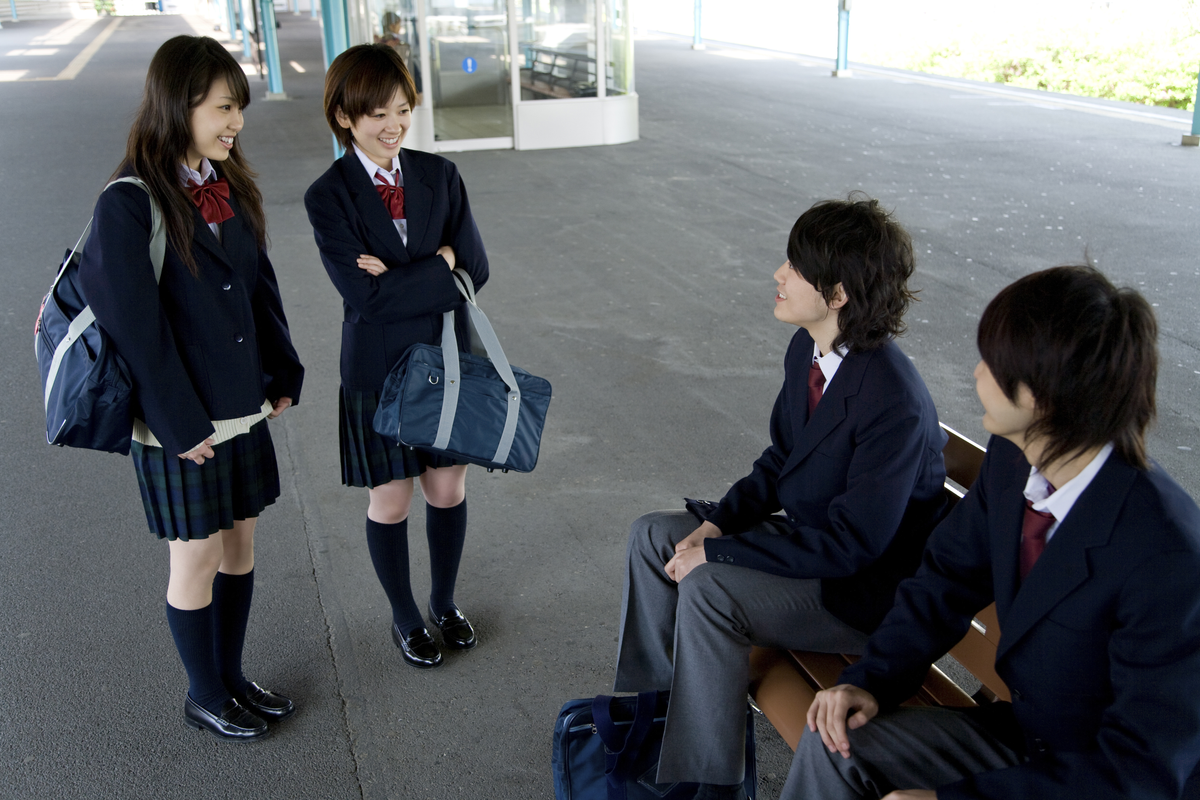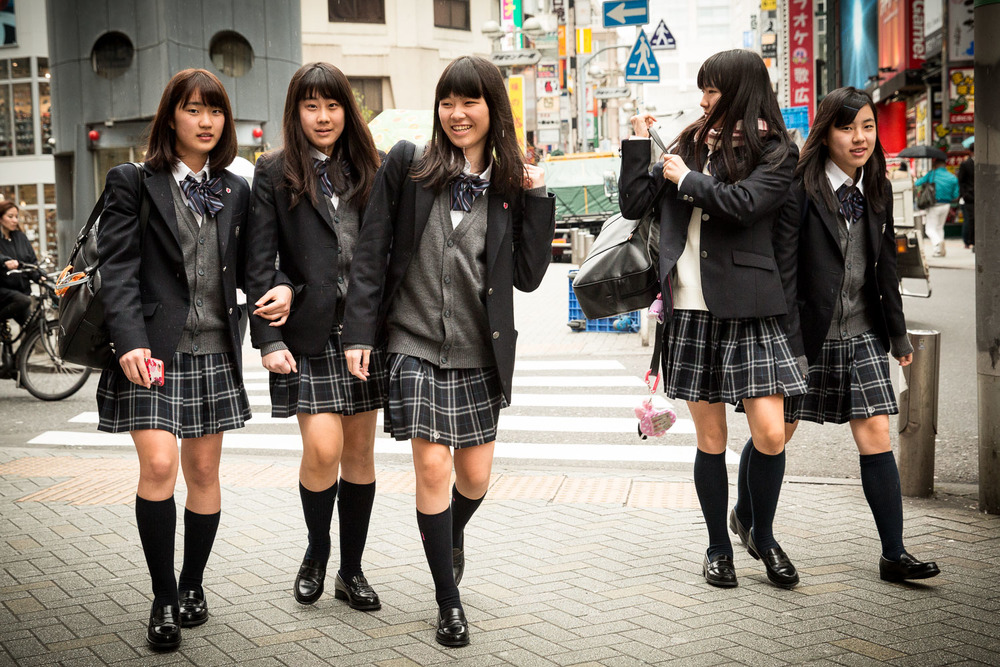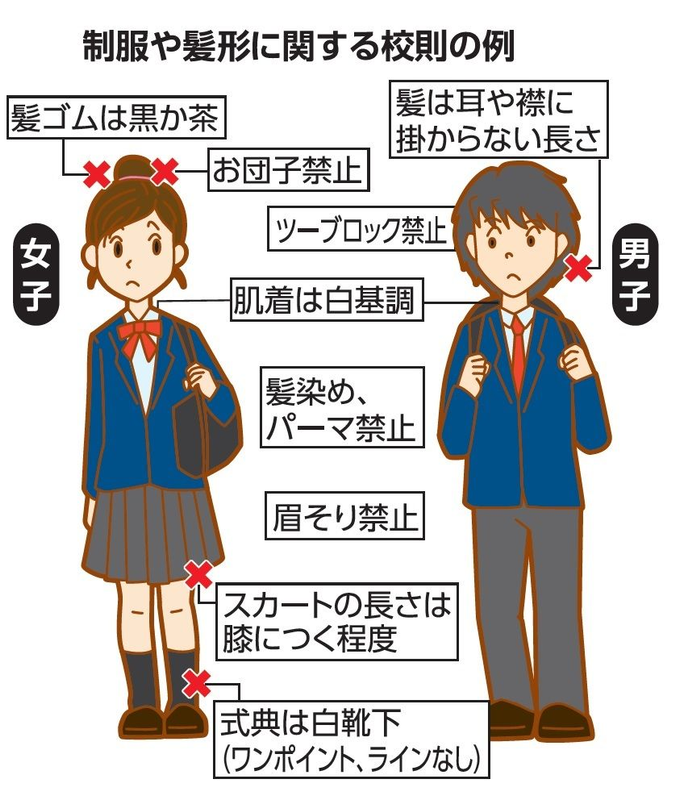Japanese Schools Ban Ponytails On Female Students Because They Could Arouse Boys
While ponytails are banned in Japanese schools, bob hairstyles that expose students' necks as much as ponytails do are allowed.
From the colour of their undergarments to the length of their socks, schools in Japan are notorious for having strict rules imposed on their students' dressing
Lately, a report about ponytails being banned in Japanese schools because they could "sexually excite" male students has sparked new conversations about the country's strange rules imposed on students
On 10 March, Vice World News published a feature article about the harsh regulations known as buraku kosoku (black rules) in Japanese schools, which has since been widely reported by many international media.
Speaking to former middle school teacher Motoki Sugiyama on the topic, he revealed that he was once told by school administrators that female students cannot wear ponytails because exposing the nape of their necks could "sexually excite" male students.
"They're worried boys will look at girls, which is similar to the reasoning behind upholding a white-only underwear colour rule," Sugiyama told the New York-headquartered news portal.
The former teacher with 11 years of teaching experience explained that the purpose of the rule on white-only undergarments is to prevent them from being shown through their uniforms.
"I've always criticised these rules, but because there's such a lack of criticism and it's become so normalised, students have no choice but to accept them," he said.
While there are no nationwide statistics on how many schools still impose a no-ponytails rule, a 2020 survey found that about 10% of schools in the southern prefecture of Fukuoka prohibited the hairstyle
Sugiyama said all five different schools he has taught in the Shizuoka prefecture, which is about 144km southwest of Tokyo, have a ponytails ban.
New York Post reported that the teacher regularly posts TikToks about the arbitrary rules. He has made it his personal mission to call on the school system to drop rules that are outdated, outright sexist, or inhibit a child's self-expression.
The history of buraku kosoku dates back to the 1870s when the Japanese government established its first systematic regulation of education. Around the 1970s and 1980s, the rules became stricter in an attempt to reduce bullying and violence in schools.
Meiji University's associate professor of sociology Asao Naito told Vice World News that what gets banned differs from school to school and generation to generation. However, the intended effect to make students not stand out remains the same.
Critics of buraku kosoku also said the restrictions give students the impression that their bodies are subject to policing.
"Sexuality becomes not something that belongs to the individual, but an item or thing that can be controlled," contended Naito.
Other than ponytails and undergarments, the rules also dictate that students' hair must be black and straight
In 2017, a student in Osaka sued her school for forcing her to dye her hair black even though brown was her natural colour.
Students, whose hair is not black and straight, are told to provide photographic proof of their natural hair colour.
Additionally, Vice World News also mentioned that some of the rules contradict one another. For example, schools allow bob hairstyles even though they show students' napes as much as ponytails do.
An infographic published on a daily shows that female students are not allowed to wear a bun hairstyle, non-white undergarments and socks, as well as perm or dye their hair. Male students are not allowed to have a two-block hairstyle, among other things.
Image via Ryukyu ShimpoFollowing the viral report, the Tokyo metropolitan government said that they will be scrapping hairstyle and undergarment rules
The report by The Guardian published yesterday, 14 March, noted that the move will make about 200 schools in the capital city drop five bans, one of which includes the black hair-only rule.
Yuto Kitamura, a member of the Tokyo metropolitan board of education, said the decision to scrap the most egregious regulations was a "major step forward".
While another member, Kaori Yamaguchi, praised the move but said it had taken too long to address students' grievances.
"Japanese people have been taught to believe that it is a virtue to simply abide by the rules," Yamaguchi said.
"I hope this will be an opportunity for people to discuss what we should do to create a society where rules are observed in a way that's acceptable to everyone."



